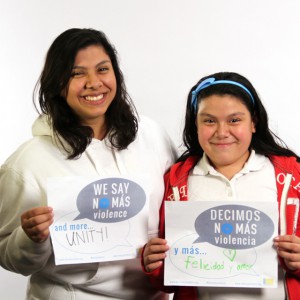Research shows that the first 20 seconds of a conversation are the most difficult. Parents often get stuck on not having a conversation because they’re afraid of those first few seconds. It’s likely that many parents avoid having these conversations with their children because they don’t know how to navigate them. We provide concrete material to open the door to meaningful dialogue and put a framework of mutual respect and understanding that will make the journey easier.
Clear, open, honest, and frequent communication is a basic characteristic of a strong, healthy family.
Families that communicate in healthy ways are more capable of problem-solving and tend to be more satisfied with their relationships.[i] In addition, how and what parents and adult caregivers communicate about body image, peer pressure, puberty, reproduction, sexuality, love, and intimacy can make a significant difference in the well-being and health of their children.
Research indicates strong family relationships can help children develop healthy self-esteem, resist peer pressure, and act responsibly when making decisions about drugs, violence, and sexual intercourse.[ii]
As children are exposed to new ideas and experiences, it can be hard to know what to say. Nobody has all of the answers, but what’s most important is to keep your conversations going.
Your children are always watching and learning from you because they respect you and look up to you. One child development expert said, “Kids hear about 1% of what we say and 100% of what we do.”[iii]
Healthy family communication permits family members to express love and admiration for one another — their needs, wants, concerns, and their differences. It includes verbal and nonverbal ways to exchange information as well as the ability to pay attention to what others are thinking and feeling.
Clear, open, honest, and frequent communication is a basic characteristic of a strong, healthy family. In fact, families that communicate in healthy ways are more capable of problem-solving and tend to be more satisfied with their relationships.4 Also, how and what parents and/or adult caregivers communicate about body image, peer pressure, puberty, reproduction, sexuality, love, and intimacy can make a significant difference in the well-being and health of their children. Research indicates strong family relationships can help children develop healthy self-esteem, resist peer pressure, and act responsibly when making decisions about drugs, violence, and sexual intercourse.
Many parents say it’s helpful to practice having conversations with their partners or in front of the mirror before talking with their children about difficult topics. You can download this packet of bilingual practice cards to practice answering questions that you might want to discuss with your children.
Download this packet of bilingual conversation-starter cards to help initiate discussions with the young people in your life. They include both general icebreakers and prompts for deep conversations.





You can quickly leave this website by clicking the "X" after this message is gone or the "Exit now" button below.
Puede salir rápidamente de este sitio web haciendo clic en la “X” despues de este mensajoe o "Salir" abajo ahora.
You can quickly leave this website by clicking the "X" after this message is gone or the "Exit now" button below.
Puede salir rápidamente de este sitio web haciendo clic en la “X” despues de este mensajoe o "Salir" abajo ahora.